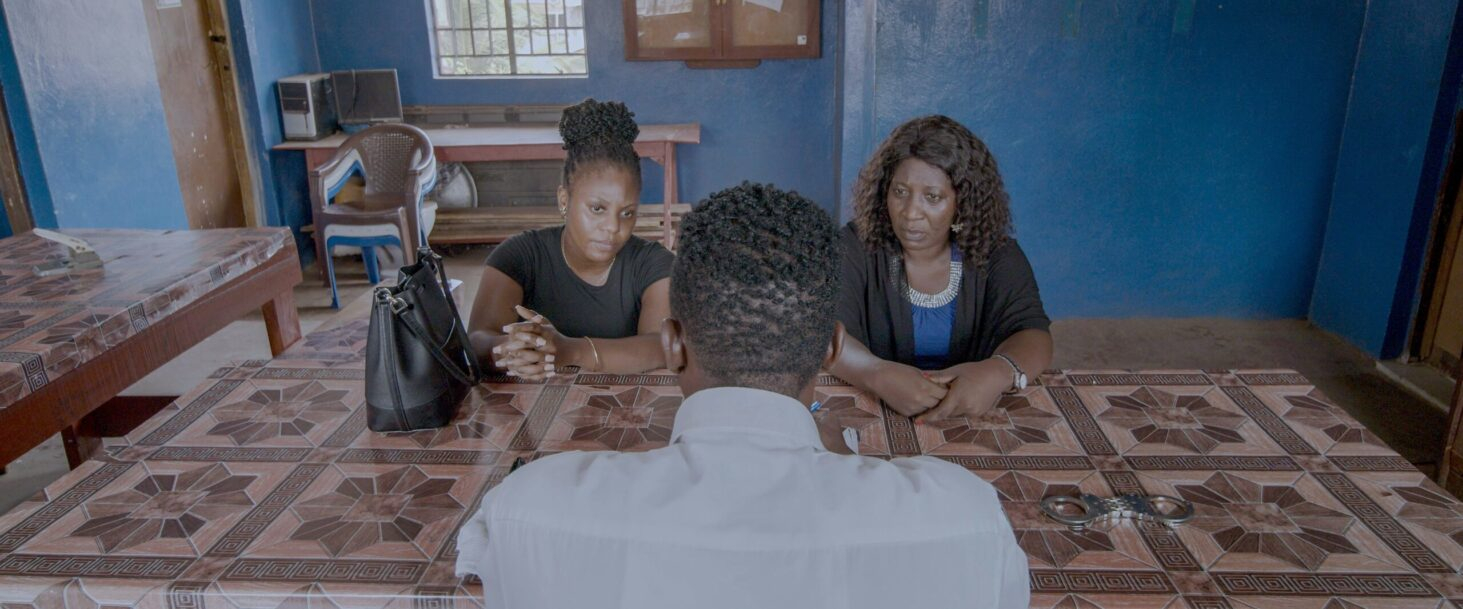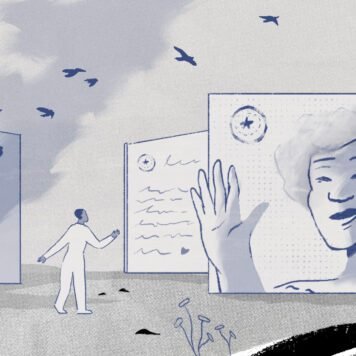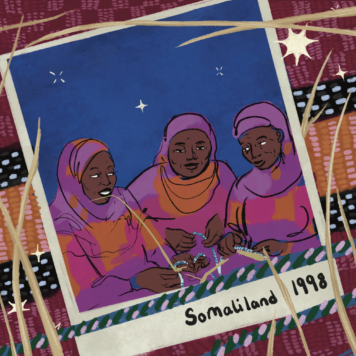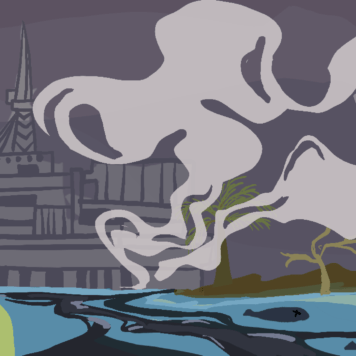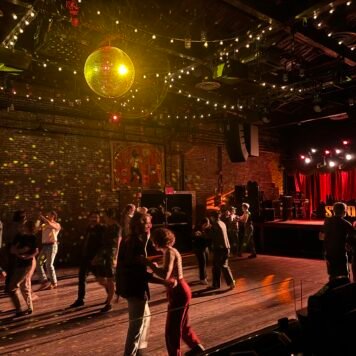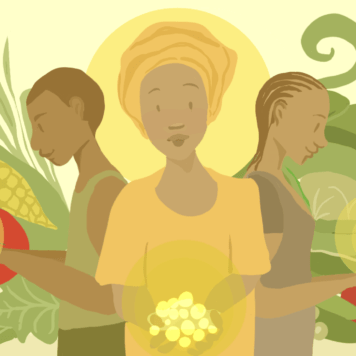As a visual storyteller, my first inclination is to paint you a picture. Therefore, I invite you to imagine that one evening, you’re home alone at your apartment in New York. Your sister has been missing for weeks: you’re confused, desperate and worried. You call your local police station, in the hope that they might be able to help you. Instead, the conversation goes like this:
Oluwaseun Babalola: Hi. I’m calling to see if I can speak with a detective.
NYC Detective: This is Detective “Blank” *not a real name*. What do you need?
OB: My sister has been missing for weeks. We’re not even sure that she’s still in Sierra Leone, where we’re from. Is it possible to get some investigation of her phone records or travel records? She still has her US cell phone.
NYC Detective: *deep sigh* How old is she?
OB: She’s 41.
NYC Detective: How do you know she doesn’t want to be missing?
OB: What? Why would she want to be missing? No, this is not like her.
NYC Detective: I’m saying she’s an older woman; maybe she disappeared on purpose.
OB: *a beat* Are you going to help me or not?
NYC Detective: Are you getting an attitude with me?
OB: Are you going to help?
NYC Detective: … No.
*phone call disconnects*
The dialogue above is an actual conversation. Can you imagine the disappointment? My first thought when he hung up the phone was: Damn, I wish I didn’t say we were from Sierra Leone. He knew we were Black. He probably would’ve helped otherwise.
That thinking might seem extreme to some, but it was my unfortunate reality. My sister, Massah KaiKai, went missing in the summer of 2018. At the time, she lived in Freetown, Sierra Leone, where our mother was born and raised. Massah created opportunities for local women in the textile industry by initiating significant projects, such as a collaboration with American Apparel. The t-shirt line, showcasing traditional Sierra Leone tie-dye, sold out completely, with 50% of the proceeds allocated to the women who produced the designs.
Earlier in 2018, Massah was recommended for the position of Executive Chair of the Small and Medium Enterprise Development Agency (SMEDA) under President Julius Maada Bio. However, before she could assume the role, she disappeared.
Every subsequent meeting, phone call, or email correspondence ended the same as that fruitless conversation with the NYPD officer – at a dead end. The misogyny my mother and I encountered when searching for her from country to country, official to official, made it clear how low we ranked in their priorities. After years of feeling lost, defeated, and isolated by the process and treatment, I decided to make a film about the experience.
Fighting Giants is a short narrative film about a mother and daughter searching for their missing family member in Freetown, Sierra Leone. This project was daunting to approach and harrowing to write, direct, and produce, yet also a liberating and empowering experience for me. Through it, I aim to highlight the grief of families facing such tragedies and the lack of protection citizens have in their own country, as well as to humanise the individuals who go missing.
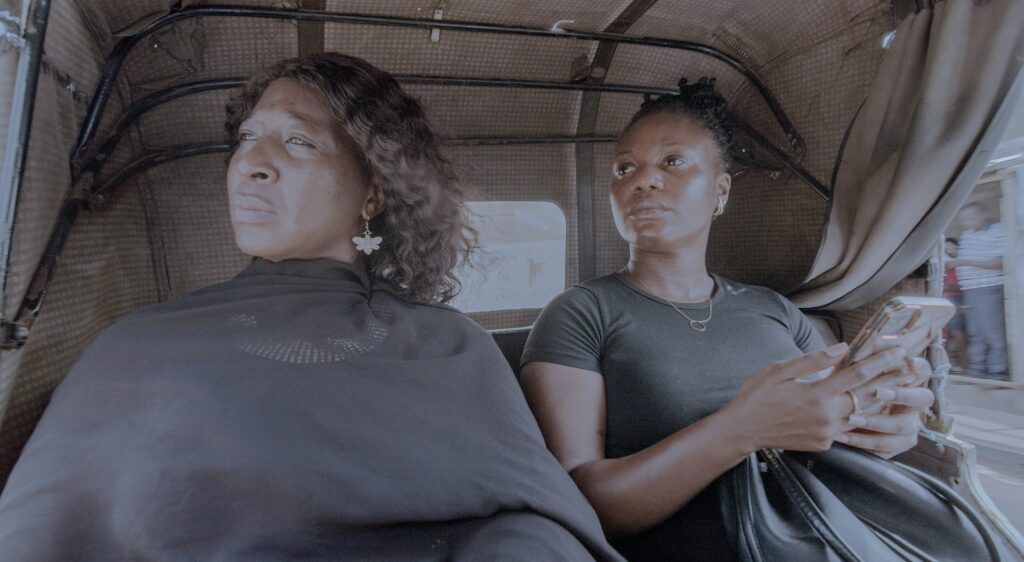
Subscribe to shado's weekly newsletter
Exclusive event news, job and creative opportunities, first access to tickets and – just in case you missed them – our picks of the week, from inside shado and out.

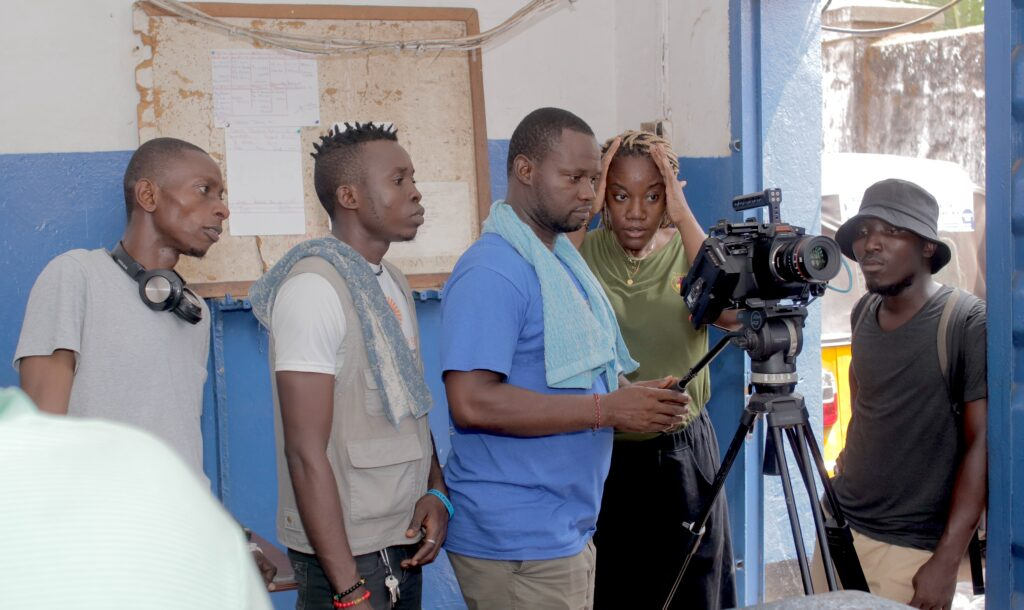
A worldwide systemic problem
Many institutional systems around the globe do not protect Black people at the same urgency and scale as non-Black people, and the statistics prove it. The National Crime Agency reports that Black people accounted for 14% of missing people in England and Wales between 2019 and 2020, which “is four times the relative population of Black people living in England and Wales during this period.”
In 2023, UK charity Missing People created a report, “The Ethnicity of Missing People,” the first of its kind. It found that “people from minority ethnic groups were missing for longer, less likely to be found by the police, and less likely to be recorded as being at risk, than white people.” This negligence appears in recent cases in the UK, such as those of Blessing Olusegun, Taiwo Balogun, and Samaria Ayanle.
In the US in 2022, young Black women 20 years of age or younger made up just 2% of the population, but more than 15% of missing persons. According to the National Crime Information Center (NCIC), that same year, more than 97,000 Black women were reported missing, which is about 35% of missing women and girls that year. Black people make up about 14% of the U.S. population. On average, cases involving Black women stay open four times longer than other cases.
According to USAID, women account for 52% of the total population in Sierra Leone. The 2020 Demographic and Health Survey (DHS) says that 61% of married women in Sierra Leone have experienced physical, sexual, or emotional violence from their current or most recent partner. The 2019 SLDHS also reports that 62% of women aged 15–49 report experiencing physical or sexual violence. Sexual violence can affect people of any age, with cases recorded as young as seven months old and as old as 70.
These statistics point to deeply-rooted, prevalent and pervasive misogynoir that places Black women and girls into a perpetually vulnerable societal position, regardless of their geographical location.
Returning to Salone
Being back wasn’t easy. During the first few months of her disappearance, my sister was front page news every day. Now, a few years later, I was back in the country, working on a film intended to share the story of the aftermath, that criticises the corruption and incompetencies of the Sierra Leone police and government, and calls for disruption and change.
It was my first visit to Sierra Leone completely alone, as much of my extended family has passed on or no longer lives in Freetown full-time, saving their stay for holiday visits. I was constantly on high alert, not knowing if anyone cared enough about what I was attempting, but remembering my sister may have thought the same while living in Freetown. That being said, Sierra Leone was as I remembered; personable strangers to laugh and joke with, bikes and kekes that refused to go where I wanted to go (especially during rush hour), the fragrance of my favourite cuisine on the planet tempting me wherever I went.
With all the familiarity of home, there were apparent changes. The cost of living had skyrocketed in just a few years of my last visit in 2019. While Sierra Leone has had its share of warfare and strife, I personally had never experienced such a military presence. We lost family to war, and I imagine this unease was not new to the citizens living around me. There was anxiety in the air since the attempted coup in November 2023, and no one knew when another proverbial government shoe would drop.
Still, I tried my best to keep my head straight. My goal during my visit wasn’t to find answers or to look for further clues about Massah’s whereabouts. My goal was to tell a story that sat in my heart, which could then act as a catalyst for renewed conversation surrounding her disappearance and the disappearance of other Black women around the world. In the film, I recreated the conversations my mother and I had with appointed officials as we searched for answers. Much of the dialogue is verbatim from the words uttered to us behind closed doors.
My time filming Fighting Giants in Sierra Leone brought further grief and frustration, laced with the difficulties of filmmaking and structural and social unpredictability. It reminded me of Massah’s daily voice notes I received, describing everyday living in Sierra Leone and the aggravation that can come with it – bureaucracy in the smallest of administrative tasks, finding community to trust, personal safety as a woman living alone, broken faulty back-up generators resulting in no electricity to conduct remote work, or nosy neighbours harassing her dogs.
Still, every morning and evening, commuting to-and-from set, whipping up and down mountains on the back of a motorcycle, I passed by her favourite cafes, restaurants; her old house and places we’ve visited together. I found a sense of freedom in confronting terrain that brought such pain and peace, knowing I could, in some way, be close to her again.
What can you do?
It’s easy to think you’re too small to make a difference, but every shift, every action, and every outspoken word creates an impact far more significant than you can imagine. We face countless circumstances that try to shame, abuse, or coerce us into silence. Fighting Giants is my contribution to a movement to reclaim power and voices in communities impacted by this injustice.
Finding and using your voice can be challenging, but when institutions fail to protect us, we must rise to challenge those systems and the forces behind them. I intend to do that with this film.
- Fighting Giants is in post-production and needs your support to complete this vital project. To pledge, visit the crowdfunding campaign
- Email FightingGiantsFilm@gmail.com for any direct messages.
- The Black and Missing Foundation (BAMFI), From The Bottom Up Foundation, and For Black Women UK, are just a few of the organisations that advocate for Black missing persons cases.
(Fighting Giants Film/Oluwaseun Babalola are not affiliated with any of the above organisations)

